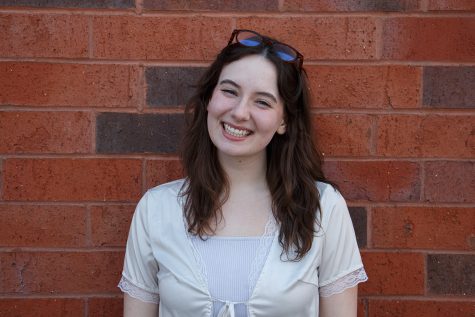Is the cold making me SAD? Ways in which weather can affect mental health
Cold weather may mean more than bundling up
Photo by Submitted
The upcoming midterms aren’t the only thing affecting mental health- weather is too, and it plays a larger role than initially thought.
I don’t think I’m alone when I say the weather affects my mood.
Oh, it just so happens to be sunny and there’s not a cloud in the sky? It’s a good omen – I feel great.
Hmm? Overcast with a chance of rain? Today will be “one of those days”, I suppose.
I behave as though my disposition is predetermined, as though I have no say, no control in how I will face it all. Even so, before I’ve decided on what I’ll wear, I peek through the blinds of my window to see what I have to work with.
Well, with the general gray tones of the outdoors, this neon green tracksuit may not be the way to go today- I’ll save that one for when it’s sunnier. Unless that’s precisely what today needs?
However, in the past two decades of my life, I have noticed that I feel this most strongly in winter.
But why is that? The term cabin fever comes to mind – but when did it become a socially accepted term? This popular phrase leads me to believe there must be something to be said about cold weather and how it affects a person’s mental health.
The students of UW-Eau Claire are no strangers to the cold, both on and off campus. Most of the student body is from the Midwest, and even the few that aren’t are still well-acquainted with winter weather.
We have experienced the shortened days, the layering of clothes and the walks to class in sub-zero temperatures.
We’ve learned to fall gracefully on the slick ice patches, discovered 20 degrees Fahrenheit is quite balmy and have learned to appreciate our masks for keeping the tips of our noses warm (well, some of us have, at least).
And yet, every year, there comes a time where, even on the sunniest of days, I cannot help but feel depressed.
It typically comes about when it’s overcast for days, but no snow, sleet, or hail interrupts the endless white expanses.
It’s when the temperature never surpasses zero that makes doing my homework a nearly impossible task.
It’s when stepping outside makes eyes water and wet hair freeze that I wish for nothing more than a winter advisory so that I can crawl back under the blankets and not risk getting frostbite and wind burn as I cross the bridge.
But this is college. This is just how it is, right?
Wrong.
It has been my impression that the traditional college experience glorifies overworking, downplaying struggles and involves students not taking care of their health – be that mental or physical, but often both.
To suffer is to be doing college right.
I can’t count how many times I’ve heard the phrase “you’ll sleep when you’re dead” in reference to putting studying and homework before sleep.
While it can be – without a doubt – overwhelming and stressful at times, the endless stacks of homework, ever-accumulating debt and uncertainty of futures may not be the only contributors to the winter blues.
As a student, looking beyond the fact that I attend UW- Eau Claire, I would like to see a more open conversation regarding mental health – if not just for my own sake. Again, I do not feel as though I am alone in this prospect.
In an attempt to start off this conversation, I introduce to you seasonal affective disorder.
According to Mayo Clinic, “seasonal affective disorder (SAD) is a type of depression that’s related to changes in season – SAD begins and ends at about the same time every year.”
Its symptoms parallel those of depression, though have been characterized seasonally by oversleeping, changes in appetite, weight gain and exhaustion in the fall and winter.
Common SAD symptoms in the spring and summertime are insomnia and lack of appetite — resulting in weight loss as well as anxiety.
Luckily, treatments for SAD do exist through mediums such as light therapy, medication and psychotherapy.
While spring may be on the horizon, so are midterms, so all I ask is that college students attending UW-Eau Claire and beyond take a moment to check in on themselves.
College doesn’t have to be the bloodshot eyes and Red Bull-induced anxiety cloud we all thought it to be.
Schutte can be reached at schuttge3524@uwec.edu.

Grace Schutte is a fourth-year creative writing and Spanish student. This is her fifth semester on staff, having previously served as a staff writer, Chief Copy Editor, a freelance writer, Currents Editor, and now as the OP/ED Editor. She is currently daydreaming about living softly. She is very content.

